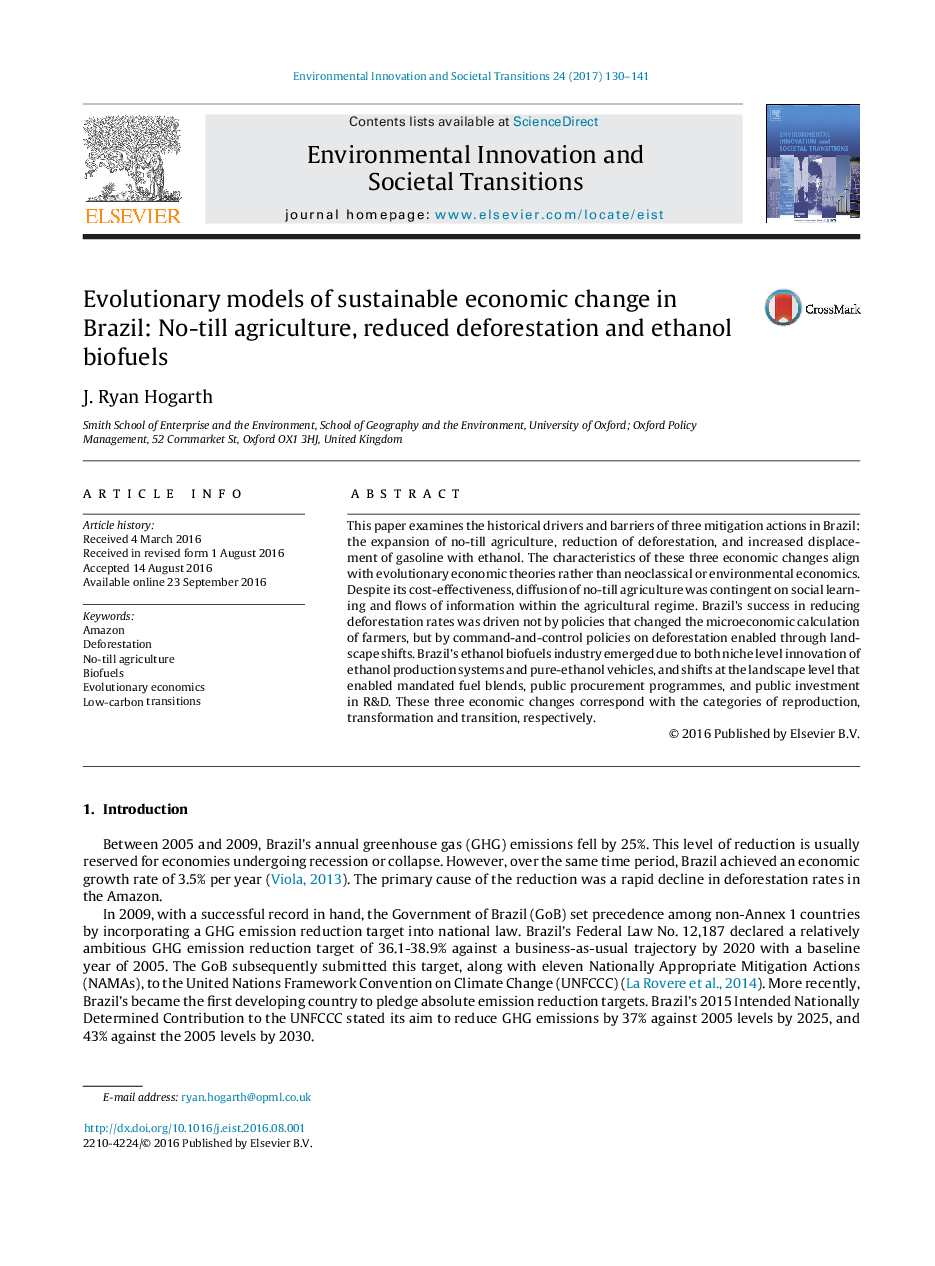| Article ID | Journal | Published Year | Pages | File Type |
|---|---|---|---|---|
| 6464198 | Environmental Innovation and Societal Transitions | 2017 | 12 Pages |
â¢Reviews drivers and barriers of no-till agriculture, reduced Amazon deforestation and ethanol biofuels in Brazil.â¢These economic changes align with evolutionary economic theories, not neoclassical or environmental economics.â¢Diffusion of no-till agriculture was driven by social learning and information flows.â¢Reduced deforestation was driven by regulations enabled through landscape shifts.â¢Ethanol biofuels emerged due to both niche level innovation and landscape shifts.
This paper examines the historical drivers and barriers of three mitigation actions in Brazil: the expansion of no-till agriculture, reduction of deforestation, and increased displacement of gasoline with ethanol. The characteristics of these three economic changes align with evolutionary economic theories rather than neoclassical or environmental economics. Despite its cost-effectiveness, diffusion of no-till agriculture was contingent on social learning and flows of information within the agricultural regime. Brazil's success in reducing deforestation rates was driven not by policies that changed the microeconomic calculation of farmers, but by command-and-control policies on deforestation enabled through landscape shifts. Brazil's ethanol biofuels industry emerged due to both niche level innovation of ethanol production systems and pure-ethanol vehicles, and shifts at the landscape level that enabled mandated fuel blends, public procurement programmes, and public investment in R&D. These three economic changes correspond with the categories of reproduction, transformation and transition, respectively.
